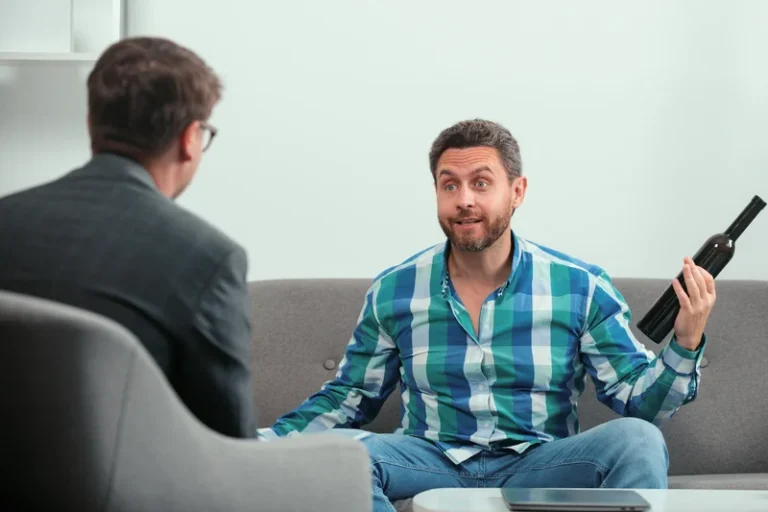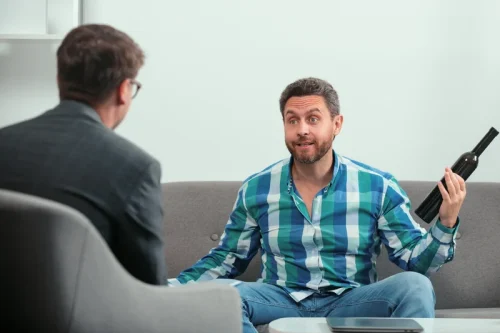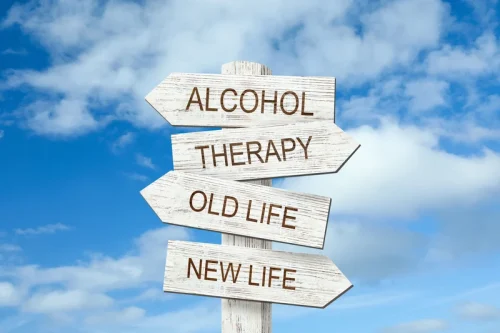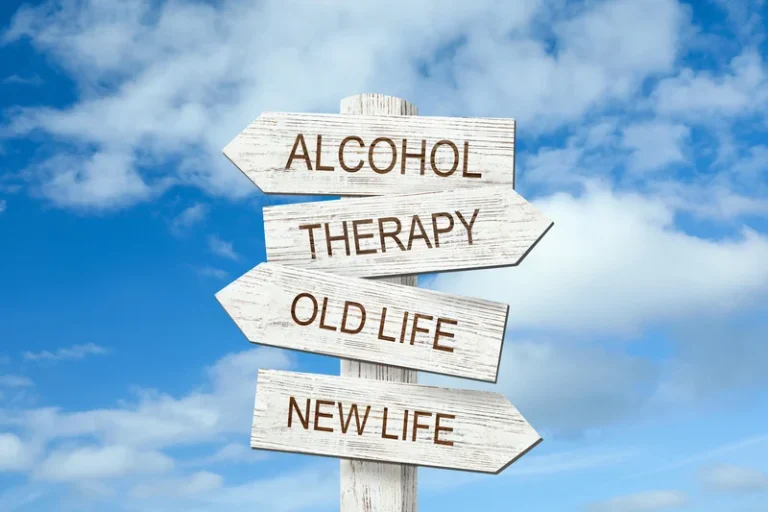
Alcohol isn’t a healthy or sustainable relaxation tool, but relaxation techniques relevant to your preferences and needs are. Fill your toolbox with techniques like breathing exercises, meditation, exercise, creative expression, and more to cope with stress without alcohol. Planning ahead for stressful situations can help you feel more prepared and empowered. Creative expression can also relieve stress13 by engaging the mind and body in a pleasurable, open-minded way. Art and music can alter your perception of the stressful event by helping you take a Alcoholics Anonymous step back from it.
- On bad days, I would leave my apartment and go back up to check once more.
- That’s why drinking can help you feel relaxed in the short-term, especially in social situations.
- Fortunately, the cycle of using alcohol to cope with anxiety can be broken.
- How long this anxiety (and other hangover symptoms) lasts depends on factors like how much you’ve consumed, your assigned sex at birth, and your weight.
Can Alcohol Cause Anxiety for Days
Some individuals may benefit from treatments such as medication or counseling. People with AUD may also experience alcohol withdrawal, which can involve physical symptoms of anxiety, such as rapid heartbeat, nausea, and shaking. According to the NIAAA, anxiety and other psychiatric disorders are common among those with AUD. AUD and psychiatric conditions may exacerbate each other, so it is possible for alcohol to worsen anxiety.
Or think about cognitive behavioral therapy.
- Hangover duration and severity may depend on the amount of alcohol a person drinks.
- The NHS website, Every Mind Matters, has advice on how to access support and treatment for anxiety in England.
- However, there is no evidence that moderate drinking will cause anxiety.
- When these symptoms become overwhelming, the person might have an alcoholic drink to try to calm down.
- Rebound anxiety can lead to a cycle of consumption in hopes of keeping the wave from crashing—but it’s not sustainable.
When you drink, do you couple this with eating pretzels, pizza or sweets? We tend to pair up our vices, and not only drink alcohol but also eat highly dense, problematic foods. Your body can have an uncomfortable sensation the next day as a result, which can feel like a nervous energy or anxiety. Drinking can also cause hangovers, which usually consist of symptoms like nausea, dizziness and headaches.

Sleep Disturbances
Anywhere from 7% to 10% of the general population has such an allergy, though it affects about 35% of those with Asian backgrounds. Signs include skin flushes and a feeling of being either wound up or very sleepy. If you need a little more guidance on how to relax before or during a flight, that’s OK. According to Rostilav Ignatov, the chief medical officer at The Haven Detox, there are plenty of apps to help you do just that. “Tools like meditation and relaxation apps for travel stress relief, such as Headspace, provide guided meditations and breathing exercises to encourage relaxation and reduce stress,” Rostilav told T+L.

Why Hangovers Cause Anxiety, According to a Medical Pro
- If your treatment plan includes medication, your psychiatrist will prescribe and manage it.
- This includes options for NHS support, links to charities, helplines and communities, and tips on self-care.
- Following a bout of heavy drinking, individuals may experience heightened feelings of anxiety, irritability, and low mood as their body attempts to recalibrate.
- Hangovers or withdrawal from alcohol can worsen anxiety symptoms, especially among people who drink heavily or those with alcohol use disorder.
Working with a therapist generally involves regular talk therapy sessions where you discuss your feelings, problem-solving strategies, and coping mechanisms to help with your condition. Anyone can experience anxiety—or “hangxiety”—after drinking, even if you aren’t dealing with alcohol dependence. However, if you find yourself frequently experiencing anxiety and regret after drinking, particularly after heavy drinking, it may be a sign of a more serious problem. Similarly, people with severe anxiety disorders may be more likely to develop AUD, particularly if they use alcohol as a coping mechanism.
Alcohol is not anxiety treatment

The more you drink, the more likely you are to induce chemical changes that can trigger panic attacks and other health problems. As a result, the best way to prevent panic attacks after drinking is to know your limits and avoid drinking to excess. Your body, however, is always looking to establish equilibrium, or balance. A heavy influx of alcohol can lead to your body blocking its own GABA receptors in an attempt to re-establish this equilibrium.

Explore Medication Options

Have you ever woken up after a night of drinking and felt like your heart was beating out of your chest? The NHS website, Every Mind Matters, has advice on how to access support and treatment for anxiety in England. This includes options for NHS support, links to charities, helplines and communities, and tips on self-care. To find out how we can help you to overcome your anxiety and alcohol misuse, get in touch today. Excessive drinking can cause anxiety, both in the short and long-term.
Staying in-tune with your needs can help reduce anxiety levels as well as minimize the urge to drink. Moreover, habitual drinking can interfere with sleep patterns, exacerbating anxiety symptoms and creating a cycle of dependence. Escitalopram is an SSRI that is particularly effective for generalized anxiety disorder. It works by increasing serotonin levels, which improves mood and reduces anxiety. An occasional glass of wine or beer might be fine, but it depends on how your brain and body respond to it.
- According to Ashley Pena, the national executive director for Mission Connection, cognitive behavioral therapy (CBT) is one more approach to overcome your fear.
- Occasionally, Dr. Lin may recommend that additional therapy is needed and ask that you bring a therapist into your care team in order to provide the best outcome.
- Alcohol can temporarily numb uncomfortable feelings, but not only do those anxious feelings resurface, they often come back with even greater intensity.
- Nervousness affects 60-80% of individuals with alcohol-induced anxiety disorder.
Ultimately, you’ll have to quit drinking (even temporarily) and make big lifestyle changes to better manage your anxiety. And we might feel better for an hour or so, but then all those negative feelings alcohol and anxiety come pouring back and round and round we go. Abusing alcohol disrupts the brain’s chemistry and ability to communicate effectively with the rest of the body. The disruption of the brain’s pathways can impede the brain’s ability to regulate moods and behaviors. They effectively slow things down, helping you to relax and reduce your anxiety.